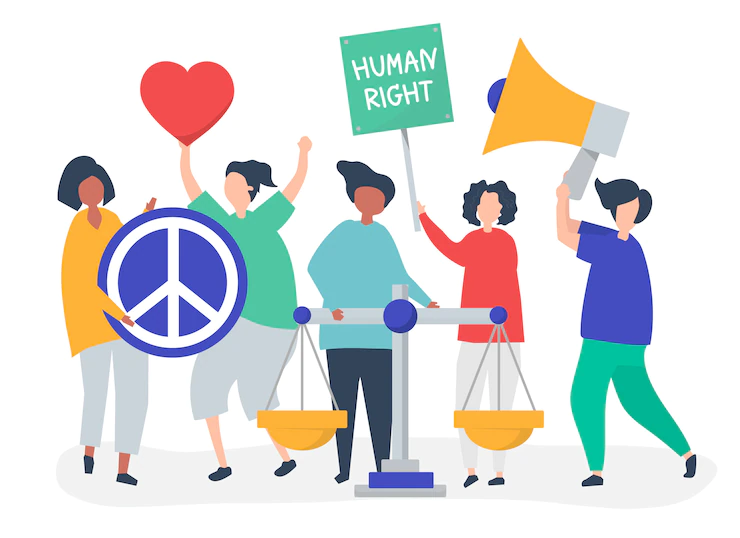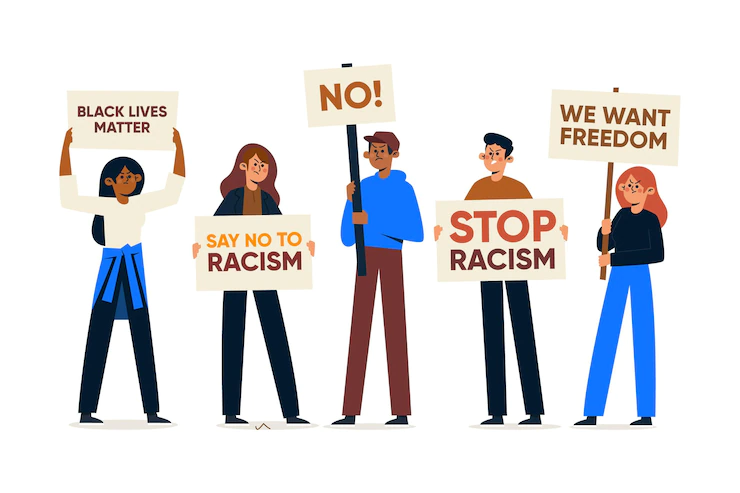Every year on December 10th, Human Rights Day is celebrated around the world. It is the day when the Universal Declaration of Human Rights was adopted. It comprises all the rights to which you adhere as a human, regardless of your race, color, religion, sex, region, or political belief.
Since their foundation, human rights have been acknowledged worldwide and recognized as an essential entity for peaceful living. Till the 19th century, human rights were a matter of national affairs, but during the 20th century, they became international. The abolition of slavery and the treatment of wounded soldiers are some of the earliest examples of human rights. But as society develops, human rights also start changing and evolving.
For our country too, these laws are protected by the constitution, and they are strictly abided by all the citizens. Most of these laws lie under fundamental rights. But even though our laws are protected and also cherished by people all over the globe, we still face differences.

Still, these laws face breaches and the protector of these laws are in jails and struggling. For us, to make these laws prominent we must realize their importance and protect these at any cost.
The definitions of human rights must have been altered and changed for good, but they are still as important as at any time before. It is important that, as humans, you recognize your and your fellow humans’ rights.
Who should learn about it?
It’s not important that these laws are concerned only with students, and only they must learn and adhere to them. For a constructive society, people from all strata and divisions of society must know the importance of these human rights.
If you are a privileged individual in a society, you must carry the other underprivileged people forward.
So, if you are in a decision-making position in an organization, you need to understand the importance of making your employees aware of the same.
1. Ensure the right formation of rules:
While making any set of rules, any organization should ensure that there is proper conduct of all the processes. Any organization should be extra careful while forming any rules for the employees and also you must realize they are not discriminatory to any employee.
2. Track of policies:
Organizations need to keep track of the policies and also make regulations to prevent any breaches. They should know how can a policy affect people. There must be strict rules against whoever is not adhering to the policies.
3. Discrimination:
Organizations should ensure they are not promoting any kind of discrimination in the company regarding sex, caste, religion, or originality. They must treat everyone equally and also any discrimination should lead to a certain penalty.
4. Involvement of any employee:
The organization is also responsible for any employee who is involved in harassment or any practice as such. Hence, an organization needs to recognize all the employees are behaving following the rules.
5. Train your employees:
Organizations must also train their employees to make them aware of the regulations they have to be in. There must be regular training for the basic behavior and things employees must follow in a working culture. But often this training can be boring and non-engaging. Hence, to make these engaging you must introduce your employees to features like gamification and interactive learning for a better approach.
How can you make your “human rights” training interesting?

Well, as a responsible organization, you must see that these issues are taken seriously by the employees. Hence, you must ensure the information is comprehended well by the employees. Even though this issue is quite sensitive, it is still boring, and not many employees listen to the training attentively.
Hence, it would help if you made your training programs engaging enough to cater to knowledge properly.
- Gamification: You can use gamification for the training courses. The feature may also include a leaderboard that evokes healthy competition among the employees. They are motivated to perform better and listen to the information more carefully.
- Quizzes: To test the employees’ knowledge, you can add quizzes after every course to see how much they have retained.
- Community: You can establish a community to promote social learning and communication among the users. They can post queries if needed.
- Feedback: it is one of the most essential features for the training of this sort. The users can submit feedback anonymously telling if they have any type of complaint against any employee. This gives them free space to communicate and also, and they do not have to tell their names.
What you can do differently?
This International Human Rights Day, try to initiate the change your workplace requires! You can conduct seminars and promote equal human rights.
- You can give a comforting space to your employees to share any experience or difficulty they have faced in the work culture.
- You must hold discussions on how to make the workspace better for the employees.
- If you are a more prominent organization, you can carry forward certain marches and lead movements to promote equal human rights.
- You can also promote human rights through your marketing or social media campaigns and help spread awareness.
- Make sure your human resource department provides a safe discussion space and take strict actions when required.
So, make sure you are a responsible organization recognizing your employees’ fundamental rights and providing them with a safe environment to work in.
Share your thoughts or any other experience you want to share with us, and you could be featured on our LinkedIn page. So, don’t wait and send in your entries right away!
Let us all join forces to recognize the quality of life we all deserve and to speak out for those who are privileged but underserved.
Hope you had a good read!



